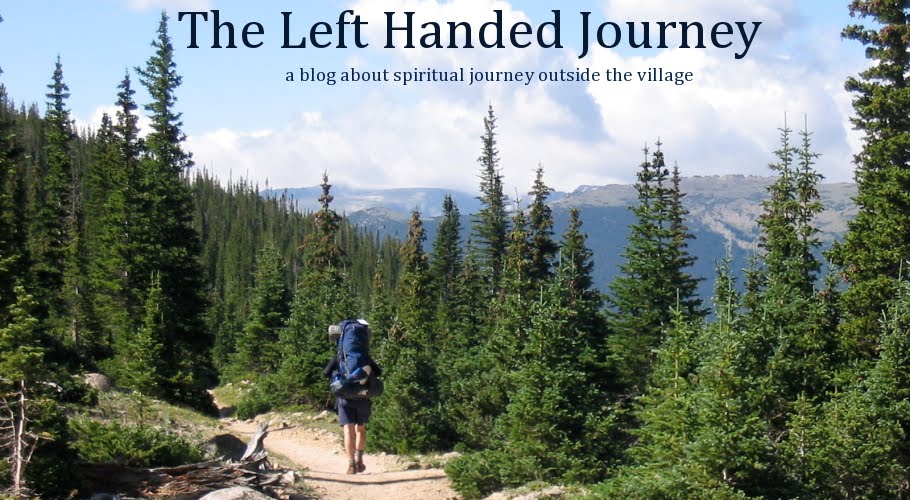I was asked not too long ago if i thought i was more spiritual than the person asking this question. I answered of course not, but this was not to imply that this person was more spiritual advanced than I was. As a pastor, i can only take people where i have gone, but at the same time i have to be willing to let people take me where they have gone. If i fail to acknowledge the spiritual wealth of another person, then i cease to grow. It is of course a major aspect of my job to develop my own spiritual wealth, but i am not better or higher or more advanced than anyone i meet, regardless of what path they are on.
Even though i am a represenative of religion, some times i am very uncomfortable with aspects of church that work in the right handed path. I sometimes see this in my congregants. The rituals of the right handed path can appear to us outside the village as confining, as a hinderance, as a barrier. This may be because we are often deemed dangerous by the village, our very existance leads so often to change, testing the foundations of the village. These rituals have a way of making us feel uncomfortable, often forcing us to move along.
Sometimes we can become attached to a particular village though, and even though there is tension it can be a valuable experience. What is interesting is that each village has a different right handed path, so even though i was nutured within a village, a church to be more specific, one that was full of people on the right handed path, i can not recoginize that path in another village. They can be similar, but they are never identical, and it is hard to become a part of a village when you are an outsider.
On the left handed path, you can converse with a village, you will never be a full member of the village (other than the one that nurtured you, or if you decide to end your left handed path and join the right handed path, but i don't think that those on the left-handed path always have a choice), but you can learn from the village. Engaging with the villages that let us in can be insightful and instructive, it teaches us, we can see a particular faith tradition in action. As an outsider you can challenge the village, and help to ensure that its traditions and rituals are healthy. I think that the more spiritually healthy the village, the more accepting they will be of the outsider, the left handed journeyman.
Christianity allows for this duality, i believe the Islam does too -- possibly buddhism, the duality of being able to encompass the left handed path of the mystic or the artist, and the right handed path of the village. Having never truly encountered a religious tradition that is truly unique to a village, like i hear they have in India, or native american religion where there were commonalities, but it changed between tribes, i wonder if the mystic had its place. Or did the mystic exist completely outside the village, making it up as they went along. Can the mystical elements of christianity be a complete path to discovery within the left handed tradition. Religion must be able to capture this duality for the left handed path is as central to the human experience as the right handed path.

No comments:
Post a Comment